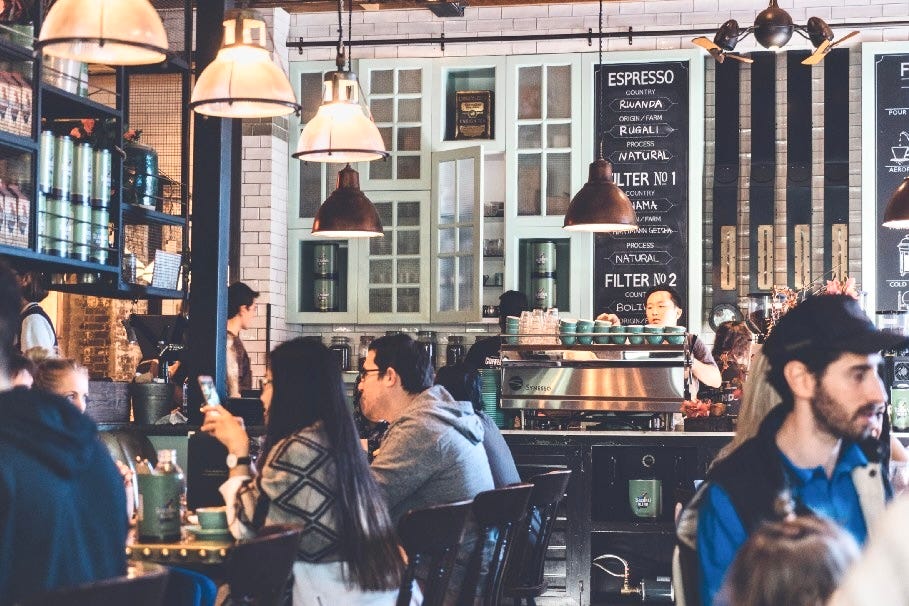Through Lulu’s Lens
I owned a coffeehouse in an area we playfully called “The Yale Grad School Ghetto.” A beautiful neighborhood on the rim of Yale’s campus. It was a coffeehouse in the tradition of coffeehouses where people came in to drink great coffee but also sit and passionately discuss local and global issues, art, and politics. The very thing that drew people to coffeehouses throughout the centuries. I have always loved them.
When tech companies developed portable technologies, they expected food and coffee businesses would allow people to come in, open their laptops, take up a whole table (four seats), stay hours, and spend as little money as possible in a for-profit business.
I own a laptop and a new iPhone. Technologies can improve our lives, and internet cafes are important, but businesses should be able to opt-out for reasons I will explain.
At first, I complied and allowed customers to use laptops in the store, but let me share two stories with you.
One day, about ten years ago, while working behind the counter of my coffeehouse, I began pacing back and forth. My store was becoming quiet, normally filled with laughter and conversation. It now felt like a study hall.
As I’m thinking this two women came in who, it appeared, hadn’t seen each other in a long while. After ordering, they sat down, and the laughter began. I was enjoying their joyful reconnecting and delighting in their spirited conversation, but at the other four tables sat people on laptops, not thrilled with the distraction. That’s when I knew why I was feeling so restless. That night, I made a small poster for the front door. It read, “Please, no laptops or the like permitted in the store or on the patio.” “Thank you.”
The reactions the next day were encouraging. Many customers were happy with this decision. Saying, “It’s about time someone had the courage to ban technology in a food business.” Some customers found other shops to work in, and a few people feared it would be a business death knell, but over the next months, I saw an increase in profits.
Seven articles, written in major publications, crossed the country, and an interview on NPR’s Marketplace. The best part was that the store went back to a hub of neighborly connection, laughter, stories, and political discussions. People began sending me articles from newspapers, picking up the story. Now, business owners had the freedom to limit or ban these technologies if they chose.
Another story comes to mind I would like to share with you.
A frequent customer came in and ordered a croissant and coffee. While waiting for her order, she took out her laptop. “Oh, Millie, I said, I do not allow laptops.” She looked at me like I just sprouted another head. But I want to read the papers. I walked over and handed her four papers that I bought for the store. She wasn’t happy. She looked at me and said, “If I can’t open my laptop, I won’t be able to come here any longer.” I replied, “We’ll miss you.”
She harrumphed, but when her order was ready, she came to the counter and asked, “May I ask, what’s your reasoning for banning technology?” “There is a long and short version,” I said. The short version is ambiance. She smiled and went to sit with her coffee and croissant.
A few minutes later, a friend of mine walked in with her friend, both with bags of yarn and knitting. After ordering, they returned to their table and spilled the yarn out, all the delicate colors of sherbet. Millie kept looking over, so Katie asked if she was a knitter. “I’m an excellent knitter,” Millie said, so Katie invited her to sit with them. They laughed, sharing knitting techniques and enjoying each other’s company. When Millie came to the counter to return her cup before leaving, I said, “Millie, that’s the long version.” She smiled, patted my hand, and said, “I’ll be back.”
What are the three C’s worth protecting?
Community, Conversation, and Connection




